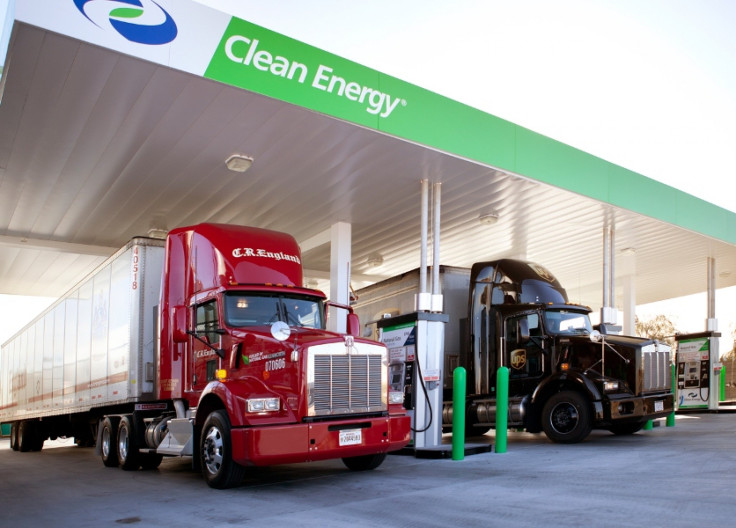US Truckers Considering Natural Gas Over Diesel Say Transition Costs Still Too High

The alternative fuel industry faces a Catch-22: Manufacturers are pressuring their distribution partners to ship their products using natural gas trucks because they're far less expensive to run than diesel fuel trucks. However, the distributors are pushing back, arguing three major reasons that natural gas trucks are still too expensive to adopt.
First, natural gas trucks cost distributors an extra $40,000 to $80,000 per truck over typical diesel trucks, which begin at about $100,000. Some federal and state incentive programs are in place to help shipping companies transition, but those amounts have so far proven insufficient for many shippers. They still expect to bear most of the costs.
Second, shippers stand to incur costs when refueling since natural gas fueling stations are still so few. Truckers lose precious time and burn extra fuel when they have to go out of their way to find natural gas fueling stations.
Third, there is no market yet for used natural gas trucks. Recovering the extra cost of a liquid natural gas or compressed natural gas truck is dubious at this early stage of the industry.
"We can't make the economics work," Randy Mullett, a vice president at Con-way Inc. (NYSE: CNW), one of the country's largest trucking companies, told Reuters. "The upfront cost is too high."
Manufacturers are focused on the fuel savings. Natural gas trucks run about $1.50 per gallon cheaper than diesel, and experts say the return on investment could be achieved in about two years for a truck that runs at least 80,000 miles a year. But once the cost of modifying fueling stations and repair shops is factored in, the equation becomes more complex.
Major natural gas suppliers have committed to building a network of natural gas stations along U.S. highways, but they won't go through with it unless they're sure that a sufficient number of trucks will regularly use the stations.
The major suppliers, which include Royal Dutch Shell (NYSE: RDS.A), T. Boone Pickens' (TSE:TPB.UN) Clean Energy Fuels and China's private ENN Group, are aware that not all truck industries are alike. Waste management companies, for instance, have been much faster about adopting alternative fuel trucks because their routines involve nightly return to a base to refuel. Distribution truckers, on the other hand, travel for long distances over days or weeks with access to mostly diesel fuel stations.
Although manufacturing companies have internal goals to improve the efficiency of their supply chains, they're relying on the trucking companies to pay for the vehicle upgrades. "We're trying to push pretty hard," said Sean Turner, purchasing group manager at Procter & Gamble Co. (NYSE:PG), which is running 22 CNG trucks at a Pennsylvania factory that makes Pampers diapers and Bounty paper towels.
President Barack Obama wants to begin a federal incentive program that would help pay for the new trucks. Big natural gas-producing states such as Pennsylvania, West Virginia and Texas already offer subsidies to get shippers to transform their fleets, as does California with its environmentally conscious programs. But the incentives don't cover enough, and in times of fiscal uncertainty, trucking companies fear they'll be stuck with a huge bill.
© Copyright IBTimes 2024. All rights reserved.




















